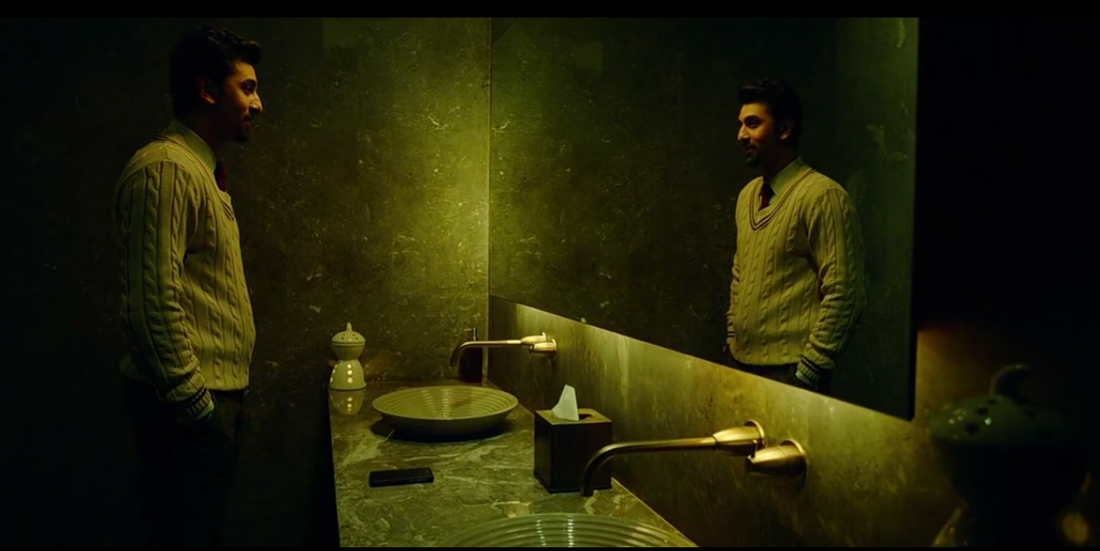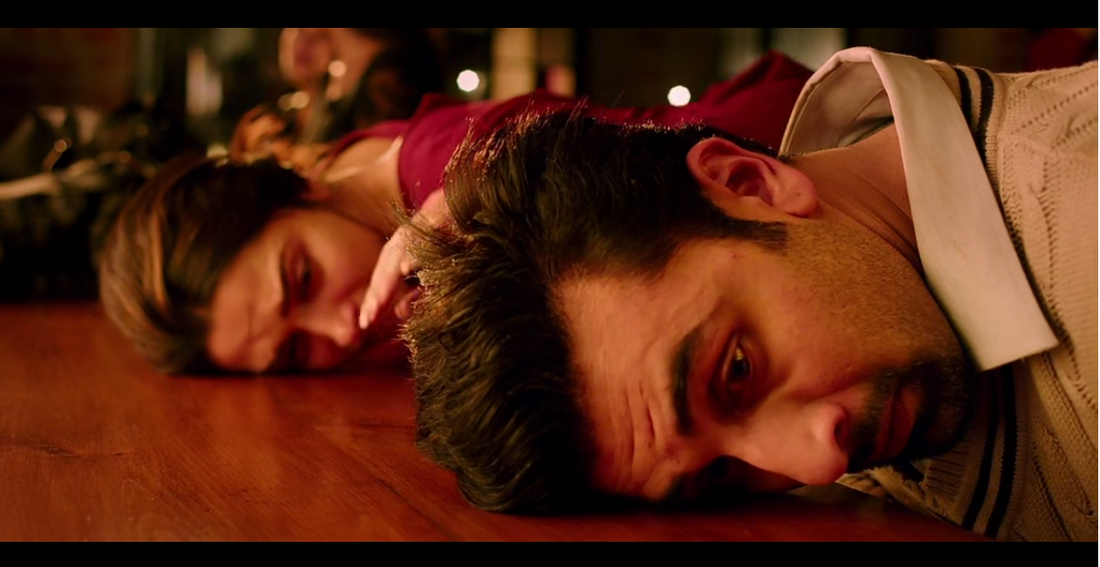|
by Harsh Vardhan On one of those lazy evenings, after I had just returned from an enervating train journey, and I didn’t want to do anything but lie down and watch something until I manage to burn my eyes and doze off to an everlasting sleep (you know what I mean), I stumbled onto Tamasha. Now, the reason why I went with Tamasha was pretty queer, although some of you might relate to it. I was browsing through my entertainment stack to look up for something that I could have watched, all while ceaselessly humming “Agar tum saath ho” from Tamasha. Now, I am sure most of you fathom the influence a song can have on your mind, and the impulsive spree it makes you go on. Long story short, I decided to watch Tamasha after all. Tamasha, as all the cine-goers would happen to know, wasn’t reviewed very well, lambasted for an inconsistent screenplay and not living up to popular expectations. The seed of prejudice was already there in my mind, even though prejudice is an attribute I seldom relate to when it comes to movies. Anyhow, I went ahead with my impulsive instinct and watched the entire film. Once I was done with the film, I wasn’t sure of how exactly I felt. The film was corroded with plot holes, and the screenplay, though unorthodox, was still a bad one. There were mostly two characters who took on the centre stage and there wasn’t much credibility in any of the supporting cast. But this is when the sentimental side of me drew swords with my intelligence. The movie, despite all its shortcomings, had a heart. A heart that was grotesque in its appearance and thoroughly misplaced from where it should have been, but was nevertheless filled with sentiments of realism. Sentiments that were mostly discordant yet resonant. The first half of the film is mostly filled with the typical modern day romance we see in Indian films, where two good looking people meet and hit off, only to be separated later on. Ranbir Kapoor and Deepika Padukone play their parts of two strangers meeting in Corsica with ease and nothing bright happens. They make an oral pact that none of them would reveal their actual identity and they won’t even meet once they leave Corsica. There is only one flaky character that of a daytime storyteller played by Piyush Mishra whose stories Ranbir used to listen to when he was a kid. This is where he had first discovered his foray into dramatics but could never work towards it due to the parental pressure of getting a “proper job”. The rest of the first half unfolds languidly with both of them predictably meeting once again a few years later and consequently getting together. It’s in the second half when Tamasha actually brings its principal idea into motion. Ranbir and Deepika can't sustain their relationship because of a reason which doesn't go down well with Ranbir. He starts losing his composure, and we are exposed to the psychological trauma an epiphany can induce and the dark alleys it can entail to. Imtiaz Ali delivers some of his most compelling scenes, with Ranbir trying to sequester himself from everything. His character develops into a confused personality whose actions are greatly influenced by the grief it deals with, and Ranbir plays it with austere sincerity. Even Deepika can’t help him, and we see a fine young man slowly descend into a kind of madness we are all afraid of. He paints an exaggerated yet acceptable picture of what can happen if we are confronted with our worst fears and regret and the effects it can leave upon us. The prime reason why I got hooked to this particular sequence is because most of us understand what parental pressure or societal pressure is, so to speak, and all of us have felt it in different intensities. Each one of us thinks of taking the initiative and pursuing our free-will, and each one of us has felt helpless when time’s passed on – but we weren’t able to. The idea of portraying a realistic picture of madness coupled with solitude is appealing and holds a lot of potential. Unfortunately, the film gets caught up engaging in its least important aspects, and instead of fortifying its idea, it gets lost in it. There is some redemption towards the end when we see an over the top finale muddled with high voltage “drama” hitting the right note, which just reflects the kind of promise the script had until it took turns to the wrong pages. And yes, I have to admit that there is one sequence that I can particularly single out as one of the most heart-breaking scenes I have ever seen, where Ranbir and Deepika meet at a bar and the extraordinary background track “Agar Tum Saath Ho” starts playing. There aren’t many monologues or dialogues in the scene except for a daunting silence coupled with exceptional cinematography. Tamasha was undoubtedly a problematic film, and there's no denying it. On the surface, it was another one of those commercial films which generally has not much to offer in terms of depth or entertainment. Except, in a way, it wasn’t. It sure looked like one, but it made an effort to soar into realms of psychology by dealing with dreams, confrontation, failure and redemption. It failed in establishing the connection audience should have felt with its leads but it still managed to put forth an issue our generation has been facing. It made me contemplate on the promise it held, and here I am talking all about it. At the end, for what it’s worth, you can't say it was absolutely unworthy.
Follow us on Facebook and Instagram to be notified whenever we release new articles.
Do you use an RSS reader? Even better!
0 Comments
Leave a Reply. |
Categories
All
Archives
December 2022
|



 RSS Feed
RSS Feed
